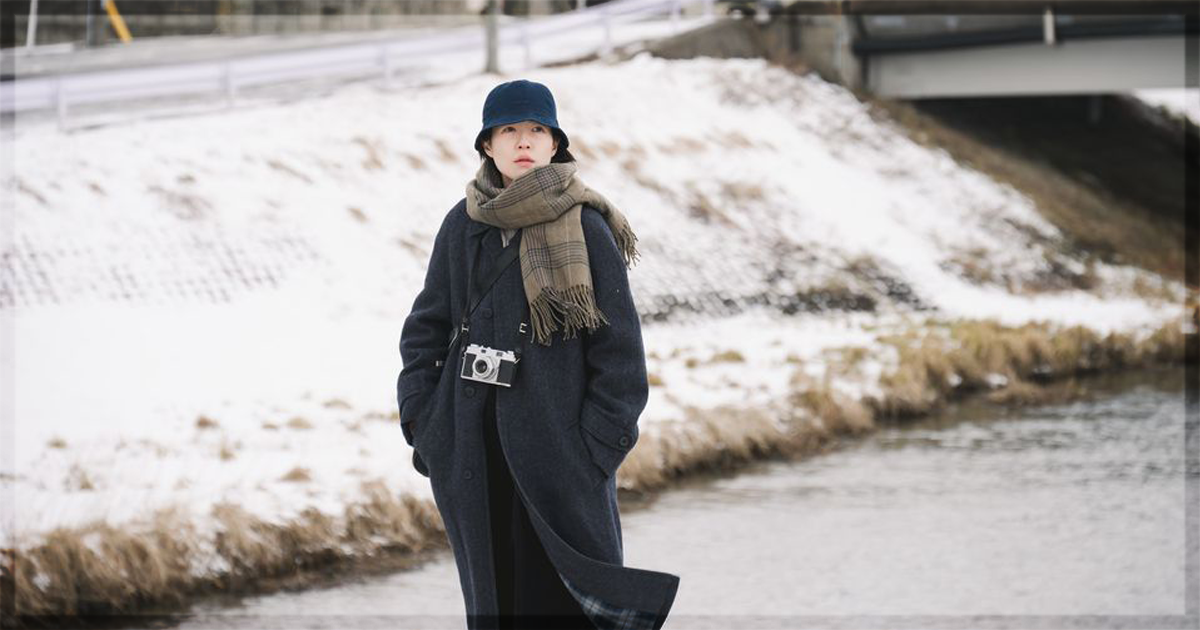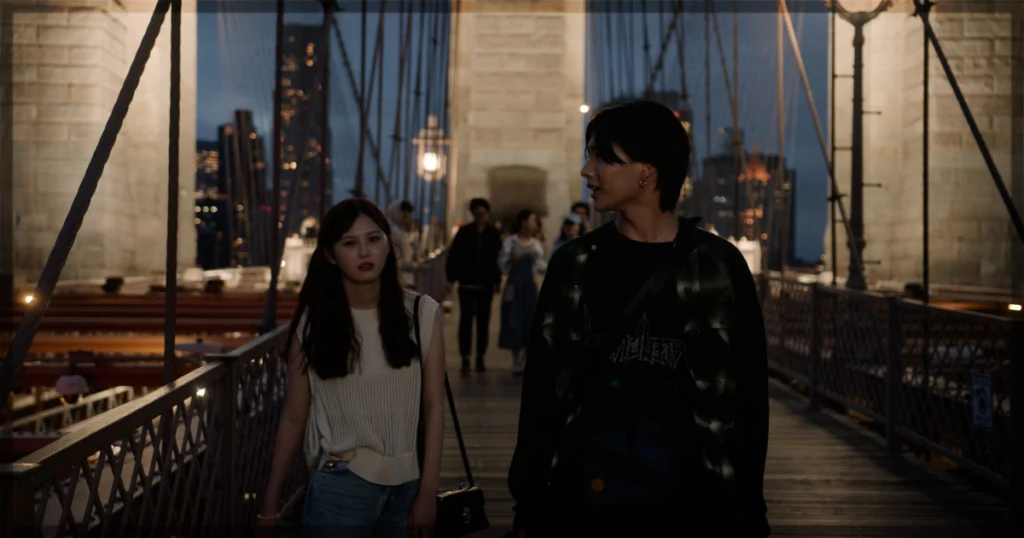An incommunicable solitude pulsates at the heart of Tabi to Hibi — also titled Two Seasons, Two Strangers — the bifurcated drama from Japanese writer-director Shô Miyake, who just won a career-defining Pardo d’Oro (Golden Leopard) for the movie, following its world premiere in the Concorso Internazionale section of this year’s 78th Locarno Film Festival. Tabi to Hibi is the fourth Japanese title to be given the prestigious prize in the festival’s history; the last three were awarded to Ai no yokan (The Rebirth) by Masahiro Kobayashi in 2007, Mujō (This Transient Life) by Akio Jissoji in 1970, and Jigokumon (Gate of Hell) by Teinosuke Kinugasa in 1954.
The movie is an amalgamation of two stories, “Umibe no Jokei (A View of the Seaside)” and “Honyara-do no Ben-san (Mister Ben of the Igloo),” penned by the great manga artist Yoshiharu Tsuge in 1967 and 1968, respectively. But instead of a direct two-chapter structure, Miyake weaves the textual sources via a mise en abyme method resulting in a wistful exploration of artistic stagnancy and existential aimlessness. In the film’s first 30 minutes, we meet Nagisa (Yūmi Kawai) and Natsuo (Mansaku Takada), two teenage strangers accidentally running into each other on a remote beach during the summertime. Nagisa just arrived in the sleepy town for a swift vacation, which includes a visit to the local museum, while Natsuo has been here a little longer after the urging of a relative to enjoy the seaside. Both in search of a sense of clarity and direction, they instantly connect and openly talk about sad childhood tales, effective ways to wrestle with depression, and what it feels like to assume someone else’s life.
What we’re watching here, as the director immediately reveals in the opening scene, is a figment of someone else’s imagination, screenwriter Li (played so achingly by Shim Eun-kyung), who, in turn, is a figment of Miyake’s imagination (In “Honyara-do no Ben-san,” the protagonist is actually a male manga artist failing to sell his work, who copes by traveling to places so far removed). As the story of the movie-within-a-movie concludes, Tabi to Hibi pivots to its actual heroine. After working on the story of Nagisa and Natsuo, Li finds herself in a creative and existential rut (for one, her new screenplay centered on ninjas doesn’t have much progress), believing that she lacks any real talent for her only mode of articulation is the written word. “Everyday life is about naming the things and feelings around us and blending in,” she surmises. Following a colleague’s demise, Li journeys through the snowy mountains, where she encounters Benzo (a recluse but receptive Shinichi Tsutsumi), the irascible owner of an off-the-map inn, which is the only place that can offer Li accommodation amidst the biting cold. Like the screenwriter’s young leads in the internal film, Li and Benzo form a friendship and find a sense of comfort in each other’s loneliness. She asks why he’s alone in a deserted village — both a question for her unlikely companion and herself — to which he reasons that everybody’s simply gone. Whereas the former frets over her future, the latter tries to outrun his past.
Miyake intimates this enduring loneliness that propels his protagonists through a crisp and evocative visual grammar, with cinematographer Yuta Tsukinaga often opting for static wide shots, which allow the characters to blend, if not disappear, into the background — spaces thick with liminality and unspoken feeling. Similarly, the poignant score and deft editing (courtesy of Hi’Spec and Keiko Okawa, respectively) help this emotional terrain play out, just as Masato Nunobe’s production design functions in perfect harmony with the director’s sense of space.
Surely there are sprinkles of Hirokazu Kore-eda, Ryusuke Hamaguchi, or Hong Sang-soo in Miyake’s slow and soft visual style, but at the same time, it refuses to be neatly viewed in the vein of such visions. What is fascinatingly curious about this film is how, through its metatextual spirit, it is able to capture just how hard it is to be a writer, to cave in to this compulsion to readily name that which refuses to be named, without being too absorbed or lost in that register. At the very least, it suggests that there’s more to the act of writing than sheer eloquence. It’s also a kind of movie that so artfully draws focus to the most granular and mundane of experiences the way only cinema could — a rare blend of crushing and comforting.
Though rendered in a different context, the kind of social isolation and unexpected connection between two seemingly lost souls that the film articulates is a corner that Miyake already mapped in his previous pictures, including the mental health-focused All the Long Nights (2024) and the sports drama Small, Slow But Steady (2022). And like the works it succeeds, Tabi to Hibi doesn’t feel too miserablist or bloatedly dramatic, invoking the director’s belief that nobody is a lost cause or too broken to be given grace. Despite all the pathos he infuses his narratives with, there is always a genuine gesture towards a hopeful alternative. In the film’s coda, following the aftermath of her little adventure with the innkeeper, Li finds herself in yet another solitary state, but it also shows her how life can thaw into something positively warm and radiant. Soon, she begins to write again. Whether she comes up with a good or terrible story is only secondary to rediscovering the will to try.
Tabi to Hibi recently played at the Locarno Film Festival.
Learn more about the film at the Locarno site for the title.
You might also like…
Fantasia 2025: ‘I Fell in Love with a Z-Grade Director in Brooklyn’ Film Review: A Lovely Ode to Rediscovering Artistic and Romantic Desire


